by Jean-Louis Naudin
created on may 28, 2010 - JLN Labs - Last update July 2nd, 2010Toutes les informations et schémas sont publiés gratuitement ( freeware ) et sont destinés à un usage personnel et non commercial
All informations and diagrams are published freely (freeware) and are intended for a private use and a non commercial use.
created on may 28, 2010 - JLN Labs - Last update July 2nd, 2010Toutes les informations et schémas sont publiés gratuitement ( freeware ) et sont destinés à un usage personnel et non commercial
All informations and diagrams are published freely (freeware) and are intended for a private use and a non commercial use.
The purpose of this test is to measure the OUTPUT electrical power of the Kapagen v3.3. There are 14 x 150 W halogen lamps connected in serie at the output of the Kapagen. I have used a Voltcraft LX-1108 Luxmeter to measure the light intensity of one of these lamps Vs the electrical power required, a calibration curve has been set. So, it is easy to calculate the total power at the Kapagen output because the measured light intensity of the lamp is directly linked to the electrical power at the output. A calibration phase has been done with one of the 150 Watt halogen lamp used as the Kapagen load. The calibration lamp has been placed in a black box with the luxmeter probe. The 150 W lamp is connected directly to the Energy Check 3000 energy meter and connected to the variac (see the photos below).
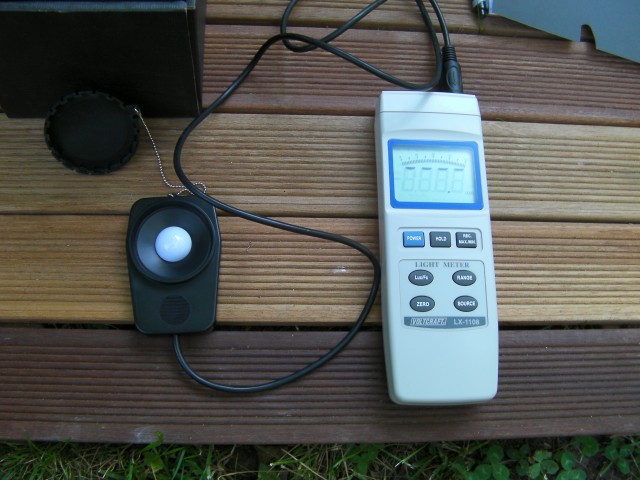
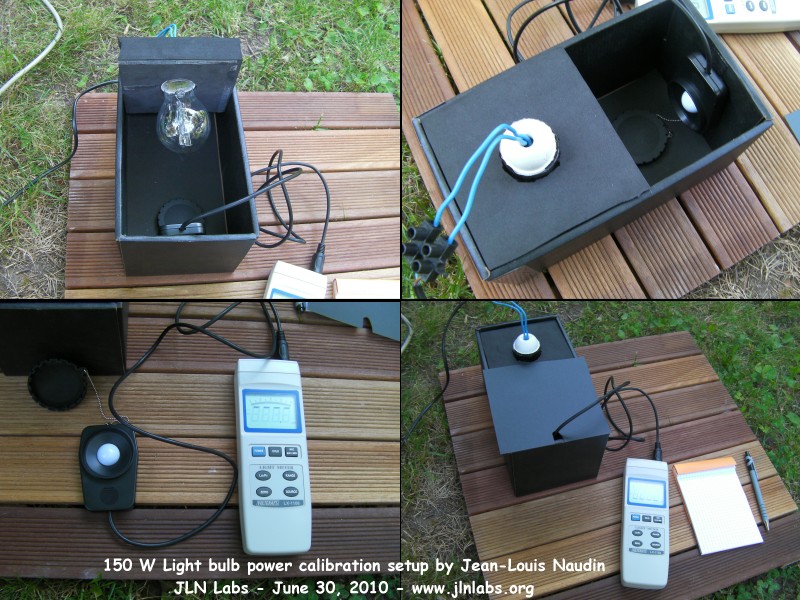
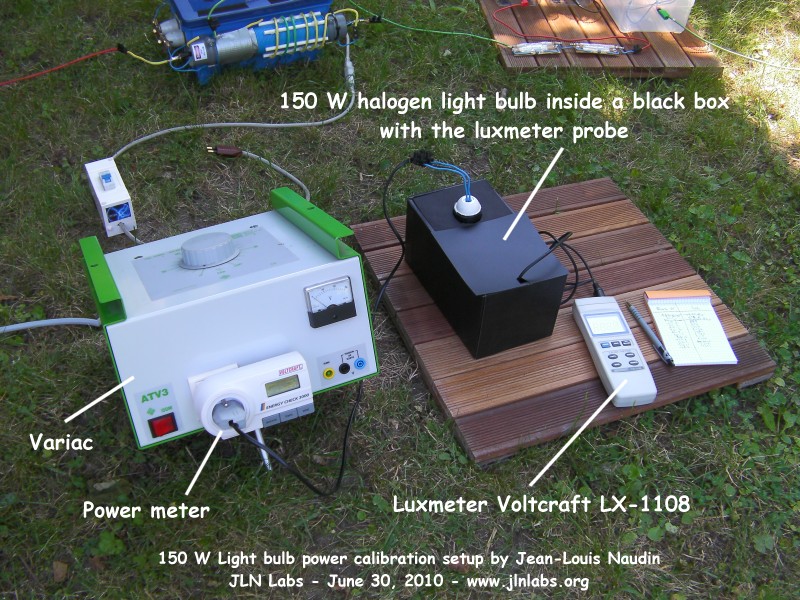
It is now easy to build up a calibration curve (see below) for one of the halogen lamp...
Then the lamp has been reconnected to the Kapagen v3.3, and the light intensity is measured while the Kapagen is running.
The total OUPUT power for the 14 halogen lamps can now be easily calculated with the help of a spreadsheet.
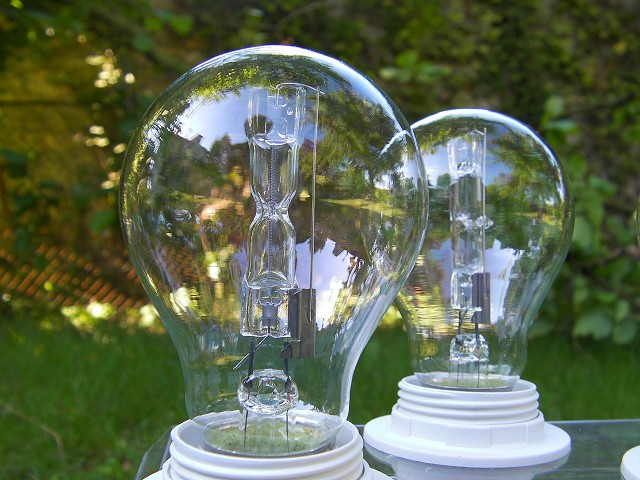
It is important to notice that I have used the same energy meter for the calibration process than for the measuring the Kapagen power. You will also notice that the input power to light one halogen lamp is fully in line with its original specifications (150 Watt of power at 220 V).
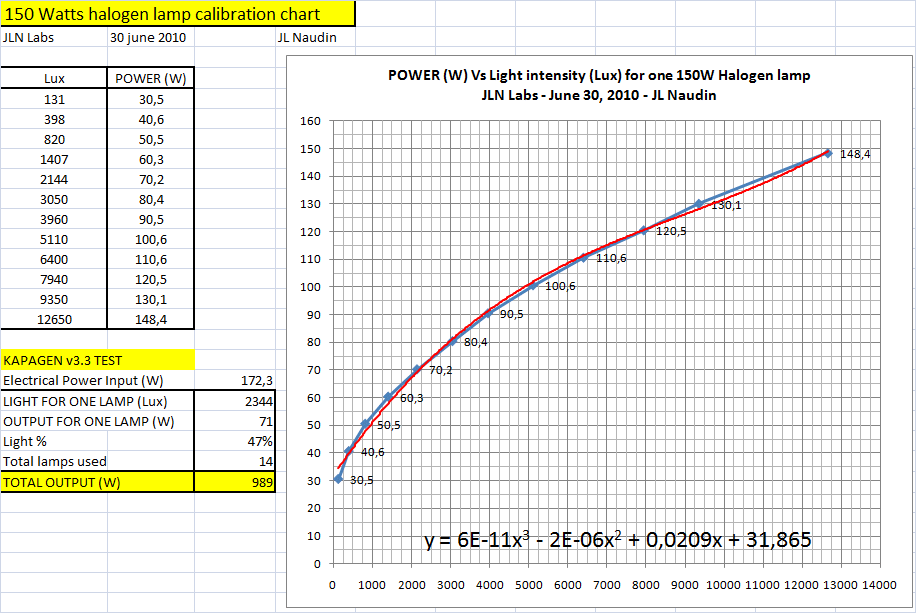
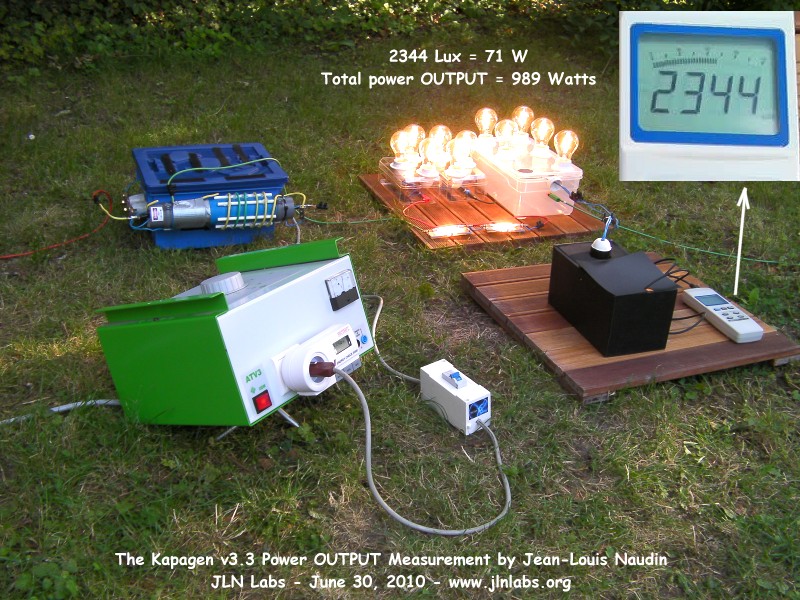
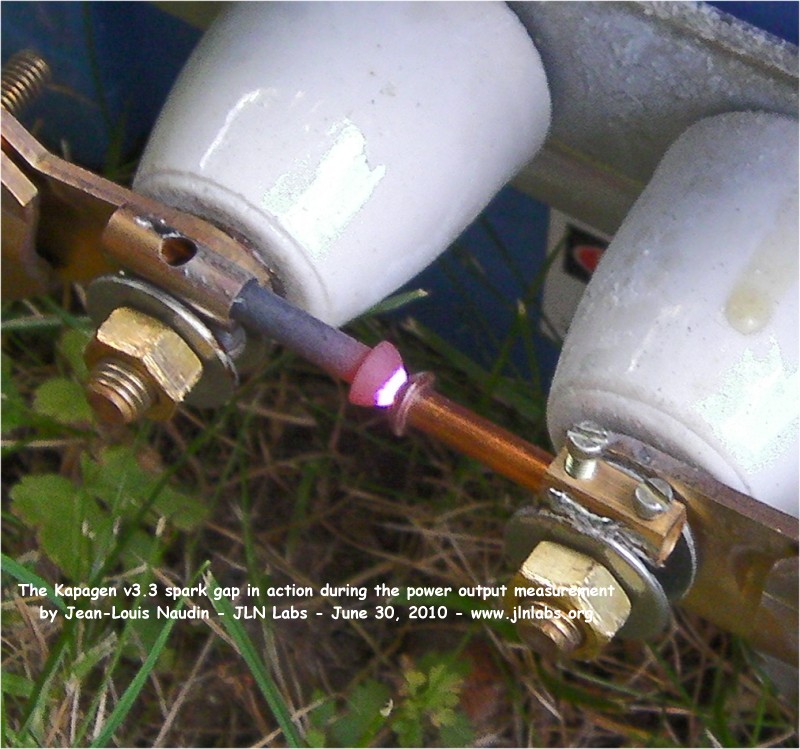
The plasma discharge is quiet and stable between the spark gap.

See the video of this experiment:
No comments:
Post a Comment